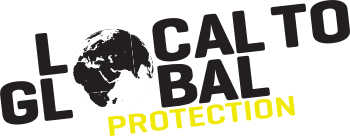Empowerment means let them make decisions. Empowerment means letting go of power.
sclr
Supporting community-led response (sclr) is a way of working which recognises that crisis-affected people are the first and last responders in any disaster. It provides a means for aid actors to strengthen the scope, scale and impact of autonomous mutual aid and build on its collective nature.
By rebalancing the relationship between locally-driven responses and external support, sclr allows international assistance to strengthen the resilience of affected people, whether in sudden-onset or protracted crises. It is designed to complement, not replace, existing humanitarian, development, and peace programming.
Sclr uses a range of modalities to enable self-organising groups to quickly identify, and implement their own responses. The approach can rapidly scale while retaining accountability, compliance and cost-effectiveness.
Sclr is supported around the world by an evolving network of regional hubs and communities of practice. These meet regularly to exchange best practice and peer learning between sclr practitioners, and to support NGOs and community organisations through training in sclr and other community-led methods.
Key Resources
Why Sclr?
Sclr provides a rapid and effective means of empowering communities to lead their own multiple responses to rapid onset and protracted crises.
Timely and relevant:
sclr enables multiple affected groups to respond rapidly to their own differing and ever-changing opportunities and needs, in ways that respect local culture, practice and value.
Social cohesion:
supports local initiatives contributing to communal well-being, by strengthening local networks and connections that improve opportunities for addressing not only material, but also emotional, mental and spiritual needs.
Strength-based:
sclr uses appreciative inquiry tools that support people to identify and build on their existing solutions, initiatives, knowledge, capacities and opportunities for improving well-being.
Dignity:
by promoting local ownership and agency, sclr builds self-worth and confidence to avoid the victim-saviour mindsets and learned helplessness that can arise from much of externally implemented aid.
Transformative:
sclr supports communities to learn, rebuild and look to the future, providing new opportunities to build on short term gains to tackling persistent root causes of vulnerabilities and threats.
Guiding Principles
A number of guiding principles are emerging from implementing sclr in a number of different contexts. Though the approach is evolving, these provide the foundation of how we work
Would sclr work for us?
Sclr is an adaptive methodology that has already been successfully used in a wide range of different sudden-onset and protracted crises, including natural disasters, active conflicts, and the effects of climate- change. A core part of the approach is that responders who are directly applying for the first time are facilitated to adapt the approach to fit their particular contexts.
There is a growing community of practice sharing lessons from implementing sclr in different contexts. If you are involved in implementing sclr and would like to join this network please get in touch.
How can we implement sclr?
Take a look through the resources available on the website to see how sclr might work in your context. If you have further questions about incorporating sclr into humanitarian, protection or conflict transformation programming project please get in touch. We can help organise a co-design/training session and put you in touch with the growing community of practice so you can discuss directly with practitioners near you.




